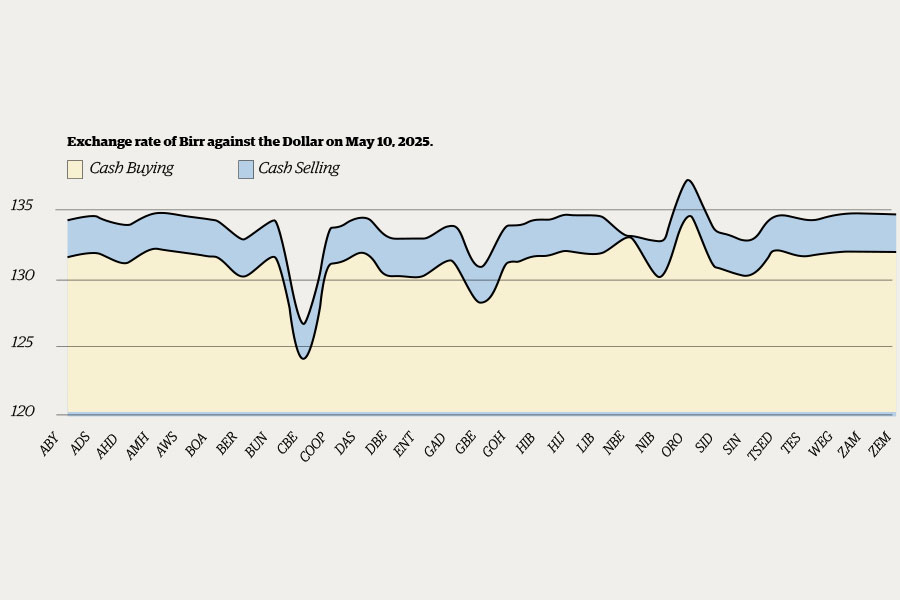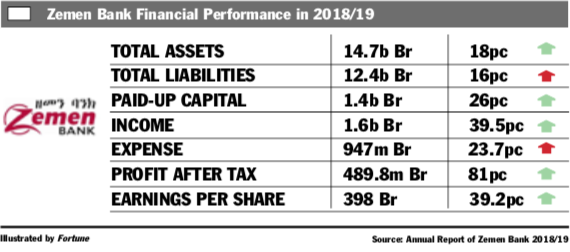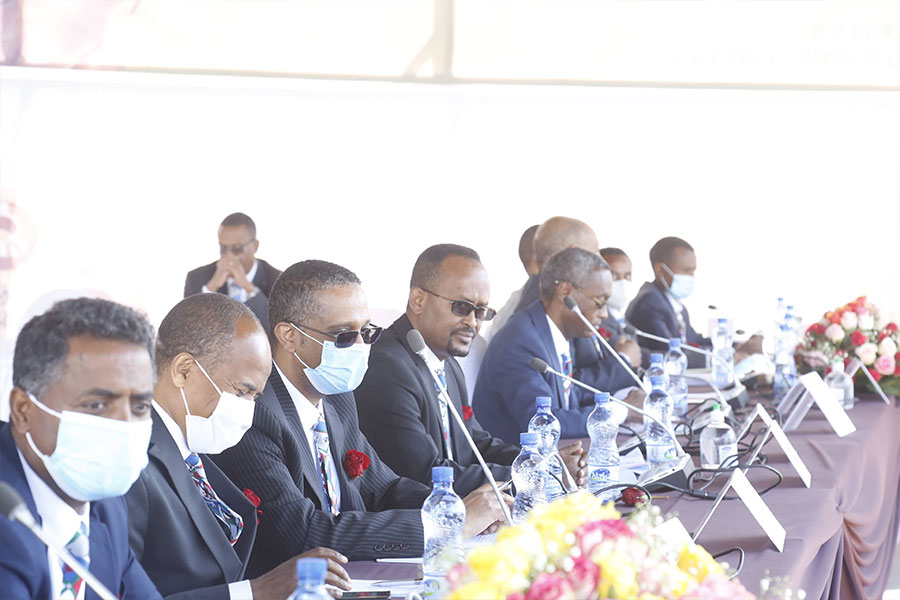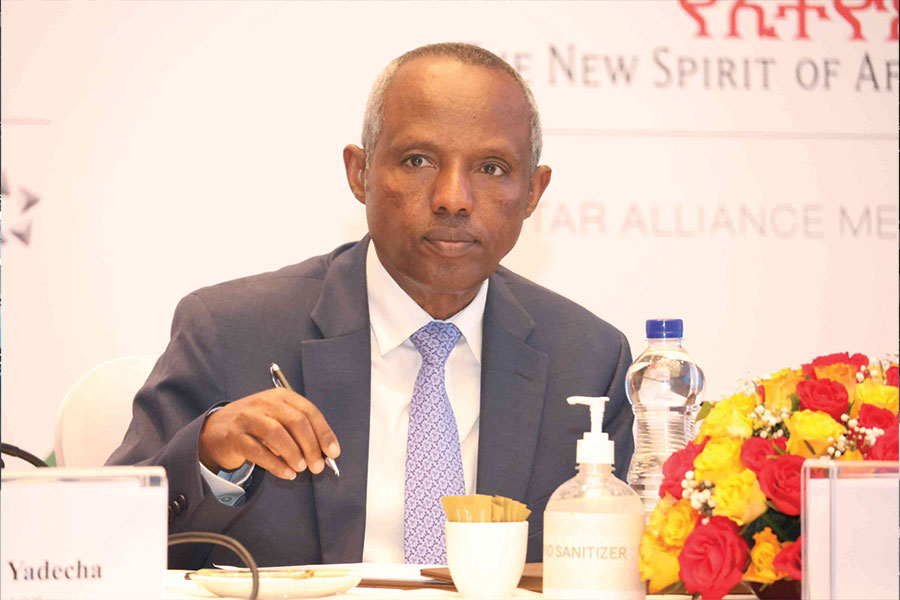
Radar | Jul 17,2022
The pioneering sovereign deposit insurer, the Ethiopian Deposit Insurance Fund (EDIF), is undertaking a major step to enhance its operational efficiency vying to deploy an automatic payout system for depositors. Aimed at bolstering public confidence in the financial system, the one-year-old Fund looks to revolutionize how depositors are reimbursed in the event of a financial institution’s failure.
EDIF’s leadership is optimistic that the automated payout system will streamline reimbursement processes, offering immediate financial relief to depositors impacted by sudden bank failures. Desalegn Ambaw, CEO of EDIF, noted that the fund is preparing a request for proposal (RFP) document with the assistance of experts from the Commercial Bank of Ethiopia (CBE) and the National Bank of Ethiopia (NBE).
“The cost required will be very high,” Desalegn stated, indicating that the fund is also pursuing development financing options with discussions ongoing with the World Bank and other financers to secure funding for the system.
Since its inception last year, EDIF has amassed 6.51 billion Br in premiums from all commercial banks and microfinance institutions (MFIs) over four instalments, constituting 0.3pc of their average deposit balances. CBE is the largest contributor, accounting for 49pc of the total funds raised. Last year, deposit mobilisation across the country's 85 financial institutions reached 2.05 trillion Br.
To optimize returns on its assets, EDIF has invested a significant portion—5.94 billion Br—into treasury bill bonds and 540 million Br in a Mudaraba account with CBE, strategically aiming for profitable yields while expanding the bank's portfolio.
The Fund’s recent performance report, presented at Zemen Bank’s headquarters building where its main office resides, underscores its commitment to fortifying depositor confidence and enhancing financial stability, according to Desalegn. The global financial crisis of 2008 underscored the critical need for robust deposit insurance frameworks worldwide, and Ethiopia is the 148th country to establish such a mechanism. This initiative is particularly timely, given the recent challenges faced by the country’s banking sector, which has experienced failures that put depositor funds at risk.
Experts argue that Ethiopia's banking sector has consistently faced risks to depositor funds but has seemingly survived due to accommodations and regulatory forbearance. Some contend that this approach may have masked underlying vulnerabilities.
The Ethiopian government allocated an initial 50 million Br to EDIF out of a total of 200 million Br earmarked by the Ministry of Finance (MoF). Desalegn states that this initial startup capital of the Fund only serves as a contingency plan to ensure timely disbursement to depositors when necessary. The fund aims to grow its direct collection from banks to approximately 7.3 billion Br while expanding its investment strategies to strengthen its financial position.
Currently, only deposits of up to 100,000 Br are covered by the Fund. Lack of resources has forced this limitation. Still, 97pc of depositors have less than 100,000 Br in their accounts. "We have covered most of the population," he said.
The Fund provides deposit insurance with certain exceptions. Deposits between financial institutions, deposits by government agencies and state-owned enterprises, deposits of financial institution executives, foreign auditors, court-revoked deposits, and deposits by major shareholders are not covered by EDIF.
In addition to improving operational efficiencies, EDIF is working to enhance its connectivity with financial institutions through a digitized platform and also plans to reassess fixed premium rates based on each institution's size and risk profile, thus creating a more prudent regulatory environment.
Last year, EDIF commenced its operations by issuing a directive to regulate the financial sector's participation in the deposit insurance scheme, aiming to strengthen the fund's regulatory capabilities. This followed the enactment of the first deposit insurance legislation by the Council of Ministers four years ago.
Merga Wakeya, the operational manager and key architect of EDIF’s formation, highlighted the intention to tailor premium rates according to the risk assessments of individual financial institutions in the long run. This approach could potentially strengthen the financial sector’s resilience but requires the institutional capacity of the Fund to grow. However, some financial veterans warn that such measures could inadvertently create instability if not managed carefully.
While acknowledging the limited coverage of the 100,000 Br insurance, he noted that the collected funds have been too small and expressed plans to expand the Fund, emphasizing the upcoming capital market's potential for investment growth. "Managing our liquidity is important to us," Merga said.
Investment banker Worku Lemma stresses the necessity of protecting small savers against economic volatility and banking failures. "It's all about protecting the depositor," he said, while explaining the delicate balance banks must maintain between accessible liquid assets and the potential for deposit withdrawals, which can pose risks to the financial system.
Worku emphasized caution as the capital market opens up regarding both EDIF’s potential investments but also the increased risk of potential defaults that could lead to significant losses. He suggested that the fund utilize its resources to increase its capital base to enhance its capacity and expand coverage.
A concerning report from NBE revealed that deposit concentration poses a significant risk to the liquidity of commercial banks. The report indicated that if the ten largest depositors in each bank withdrew their funds simultaneously, 18 out of 29 commercial banks would fall below the minimum regulatory liquidity requirements. The statistics expose the precariousness of the current financial landscape.
With total assets in the financial sector now exceeding 3.1 trillion Br—accounting for over a third of Ethiopia’s GDP—the implications for deposit insurance and depositor protection are profound. The 31 banks dominate the asset base, with the CBE contributing nearly half, while MFIs hold a mere two percent share.
The establishment of EDIF has sparked debate among financial institutions regarding the balance between enhancing depositor confidence and imposing additional financial burdens. While financial experts express optimism about the potential benefits of improved insurance coverage, others like leaders of MFIs caution against the high premiums that may detract from financial stability.
Teshome Abebe, CEO of Dire Microfinance Institution, voiced concerns that the costs associated with the EDIF’s premium requirements may outweigh the benefits for depositors. He pointed out that MFIs are grappling with rising operational costs, hindering their capacity to attract and retain deposits. Dire’s total deposit was close to 855 million Br last year and its EDIF premium was around 1.4 million Br.
He highlighted the industry's broader concerns, noting that discussions with the central bank have been ongoing for over a year without satisfactory resolutions. He argued that micro financers may not be adequately prepared to participate in this scheme.
History has shown the critical role of deposit insurance in maintaining financial stability. The establishment of the Federal Deposit Insurance Corporation (FDIC) in the United States during the Great Depression is a prime example of how effective insurance mechanisms can restore public trust in financial systems.
The IMF recommends prudential supervision, including on-site and off-site monitoring through regular financial reporting and examinations using internationally recognized accounting standards, to serve as the eyes and ears of the deposit insurance system.
Eshetu Fantaye, a veteran financial consultant, emphasized the importance of the EDIF at this juncture, stating, “insurance funds are national savings.” He called for a broader focus on investment strategies beyond treasury bills, urging the Fund to pursue opportunities that yield higher returns while ensuring financial stability.
He emphasized the need to improve the fund's operations and invest in assets that can protect against inflation. He suggested exploring investment options beyond Treasury bills to achieve higher returns and strengthen the financial stability of the institution and depositor insurance. He set a target return on investment of at least 20pc.
To enhance insurance coverage, he proposed reallocating the 1pc bond requirement imposed for use by the Development Bank of Ethiopia to the insurance fund. This would allow for adjustments to premiums and total insurance coverage. He concluded by stating "a robust financial sector safety net is crucial for a healthy financial system."
PUBLISHED ON
Sep 29,2024 [ VOL
25 , NO
1274]

Radar | Jul 17,2022

Money Market Watch | May 17,2025

Fortune News | Mar 16,2024

Fortune News | Feb 01,2020

Agenda | Jul 20,2025

Advertorials | Nov 26,2024

Editorial | Feb 13,2021

Fortune News | Dec 25,2021

News Analysis | Jun 01,2024

Fortune News | Aug 09,2025

Dec 22 , 2024 . By TIZITA SHEWAFERAW
Charged with transforming colossal state-owned enterprises into modern and competitiv...

Aug 18 , 2024 . By AKSAH ITALO
Although predictable Yonas Zerihun's job in the ride-hailing service is not immune to...

Jul 28 , 2024 . By TIZITA SHEWAFERAW
Unhabitual, perhaps too many, Samuel Gebreyohannes, 38, used to occasionally enjoy a couple of beers at breakfast. However, he recently swit...

Jul 13 , 2024 . By AKSAH ITALO
Investors who rely on tractors, trucks, and field vehicles for commuting, transporting commodities, and f...

Oct 11 , 2025
Ladislas Farago, a roving Associated Press (AP) correspondent, arrived in Ethiopia in...

Oct 4 , 2025
Eyob Tekalegn (PhD) had been in the Governor's chair for only weeks when, on Septembe...

Sep 27 , 2025
Four years into an experiment with “shock therapy” in education, the national moo...

Sep 20 , 2025
Getachew Reda's return to the national stage was always going to stir attention. Once...